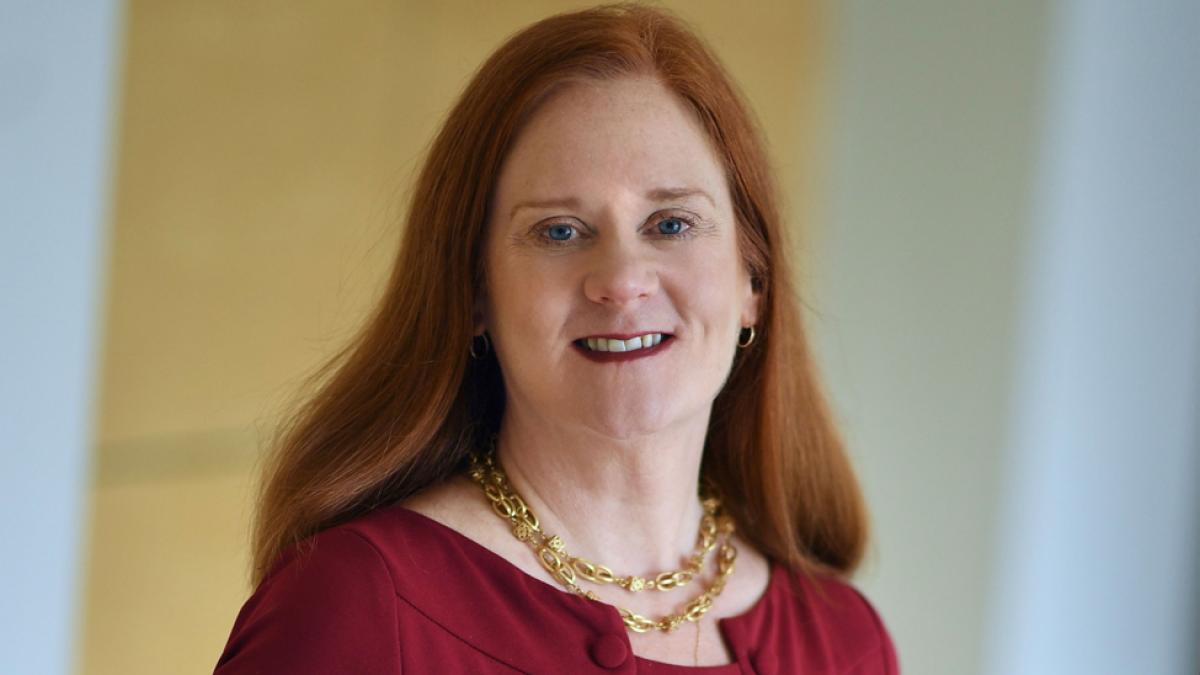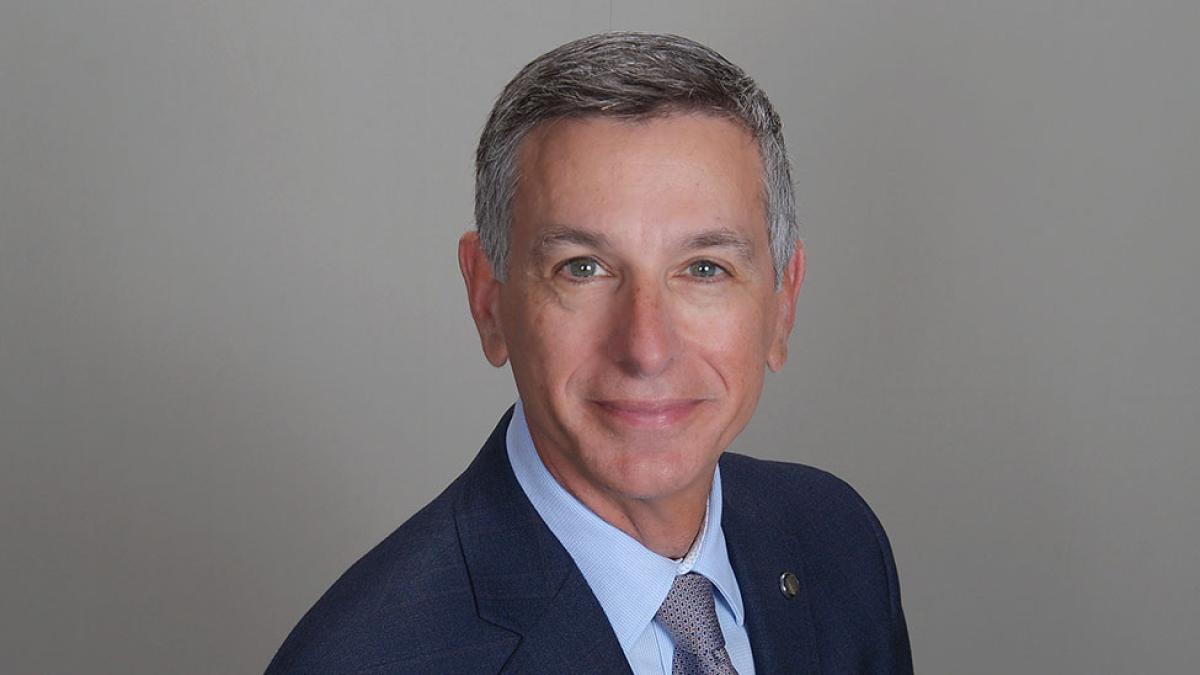
Shutdown Creates Havoc for IRS Enforcement, Revenue Collection, Tax Lawyers Say
Pace Haub Law School Professor Bridget Crawford tells Law.com that the IRS shutdown is a “gift to corporations and the wealthy.” With the IRS unable to enforce tax law, Crawford warns that each day the agency remains closed limits its ability to ensure accountability among the nation’s highest earners.

Fueling Change: How Passion for Climate Justice Paved the Way to Big Law for Natalie Lara ’25
Natalie Lara ’25 is a first generation Mexican American whose parents both came to the United States as young adults. Natalie was the first in her entire extended family to attend college and was also the first to attend law school.


Natalie Lara ’25 is a first generation Mexican American whose parents both came to the United States as young adults. Natalie was the first in her entire extended family to attend college and was also the first to attend law school.
Originally, Natalie wanted to become a climate researcher, but after taking her first environmental policy course she learned more about environmental law and was intrigued. “Environmental law really stood out to me, because my professor had explained it as a way to bridge science, policy, and people,” said Natalie. “I knew I liked working with people, but I also wanted to advocate for better environmental conditions. Furthermore, growing up in South Florida, hurricanes were a common occurrence. I saw how climate change was affecting my community and other communities like mine, and I realized that I wanted to use the law to advocate for a sustainable future for all.”
Natalie had what she describes as a very well rounded and positive experience as a student at the Elisabeth Haub School of Law at Pace University. During her time at Pace Haub Law, Natalie participated in the Land Use Law Center legal externship and helped to develop the Climate Resilient Development workshop series. She was also president of the Environmental Law Society, secretary of the Latin American Law Students Association, and Hospitality Vice-Chair for the National Environmental Law Moot Court Competition. “Pace Haub Law is very rooted in community,” said Natalie. “There were opportunities for involvement and networking everywhere, which allowed me to develop my networking and communication skills. The community at Pace ultimately helped me develop confidence in my abilities.”
In addition to the numerous practical learning opportunities, what differentiated law school for Natalie was the professors. “Every single professor was engaging and enthusiastic and all are willing to go beyond the classroom and act as mentors to help their students navigate their legal careers,” shared Natalie. In particular, Professor Smita Narula inspired Natalie. “In addition to her impressive legal career and despite any injustices that she's confronted throughout her life, Professor Narula is kind to everyone, and she reminds us to do the same. She reminds her students that it's important to process emotions as we feel them, whether we have great wins or great losses. This has been invaluable to remember.”
In 2025, Natalie graduated with an Advanced Certificate in Environmental Law. Her goal was to work in environmental law and to "end up at a firm full of people who are inspired by the law and continue to challenge themselves." Natalie is currently an associate at Kirkland & Ellis LLP, pending bar admission and feels fortunate to have the opportunity to fulfill her goals. “My studies at Pace Haub Law helped me gain the confidence and skills necessary to secure this position,” said Natalie. During her time at Pace Haub Law Natalie was also a summer associate with Kirkland Ellis and she remains appreciative of the Law School’s Career Center for Professional Development in helping her prepare for interviews and giving feedback on her applications. “I am looking forward to this next step in my legal journey and feel fortunate to have the opportunity to learn from top lawyers in the field and refine my legal practice skills.”
In her spare time, Natalie loves to read and believes that it is important to dedicate time to focus on yourself outside of your professional life.
Press Release: New Alliance Leads Groundbreaking Effort to Protect New York’s Wildlife
Habitat loss, invasive species, pollution, disease—these are just some of the threats to wildlife targeted by a groundbreaking collaboration of the New York State Wildlife Rehabilitation Council (NYSWRC) and Pace University’s Animal Policy Project (APP).

Pace University’s Animal Policy Project partners with the New York State Wildlife Rehabilitation Council as increased threats to wildlife prompt alliance of “nature’s first responders”

Habitat loss, invasive species, pollution, disease—these are just some of the threats to wildlife targeted by a groundbreaking collaboration of the New York State Wildlife Rehabilitation Council (NYSWRC) and Pace University’s Animal Policy Project (APP).
By uniting a university renowned for environmental policy innovation with the nation’s oldest state-level wildlife rehabilitation organization, the NYSWRC-Pace Alliance (NPA) will generate data, educate communities, and shape policies that safeguard wildlife.
“Wildlife rehabilitators are nature’s first responders,” said Michelle Land, clinical professor and director of the Animal Policy Project at Pace University. “They see the threats to New York’s wild animals every day, often working out of their own homes. We will gather that expertise through a statewide network that serves as a much-needed conduit between science and policy.”
According to Kelly Martin, president of the New York State Wildlife Rehabilitation Council, “Wildlife rehabilitation is most effective when backed by strong, science-based policies that address the root causes of wildlife distress. The NYSWRC-Pace Alliance will ensure that rehabilitators’ expertise informs policy decisions and create a future where both wild animals and those who care for them are better supported.”
“Every day, wildlife rehabilitators see firsthand the devastating impacts of human activities on New York’s wild animals,” said Suzie Gilbert, the Alliance’s program coordinator. “By bringing together rehabilitators and policy professionals, we can educate the public as well as improve policies on issues such as pesticide use, infrastructure design, exploitation of wild animals, and response strategies for emerging wildlife diseases.”
The Alliance, formalized through a Memorandum of Understanding (MOU), will leverage an expert network of rehabilitators, advocates, and policymakers to advance and improve New York State wildlife protection and care. Seed funding for the NPA has been generously provided by Pace University’s Gale Epstein Center for Technology, Policy and the Environment.
Key to the Alliance’s success will be collaboration with the New York State Department of Environmental Conservation and its Wildlife Health Program partner, Cornell University.
For more information about the NYSWRC-Pace Alliance, please contact:
Michelle Land
Email: mland@pace.edu
Kelly Martin
Email: kmartink@midtel.net
Suzie Gilbert
Email: info@protectnywildlife.org.
About Pace University
Since 1906, Pace University has been transforming the lives of its diverse students—academically, professionally, and socioeconomically. With campuses in New York City and Westchester County, Pace offers bachelor, master, and doctoral degree programs to 13,600 students in its College of Health Professions, Dyson College of Arts and Sciences, Elisabeth Haub School of Law, Lubin School of Business, Sands College of Performing Arts, School of Education, and Seidenberg School of Computer Science and Information Systems.
About New York State Wildlife Rehabilitation Council
The New York State Wildlife Rehabilitation Council (NYSWRC) promotes the professionalism of licensed wildlife rehabilitators through field support, educational services, and technical information. It works with government agencies, disseminates educational material and information to New York State residents, and promotes the conservation of wildlife, their habitats, and other natural resources. Members consist of licensed wildlife rehabilitators and assistants, veterinarians, and other wildlife professionals.
About the Animal Policy Project
The Animal Policy Project (APP) is a program of the Suburban Biodiversity Conservation Center, housed in the Environmental Studies and Science Department of Dyson College of Arts and Sciences at Pace University. Its mission is to safeguard animals—domestic, captive, and wild—through policy design and reform, relying on interdisciplinary research combining science, policy, and ethics. With a workforce of faculty, undergraduate, graduate and law students interested in advancing animal welfare, the APP helps partner organizations realize their policy innovation goals.
About Dyson College of Arts and Sciences
Pace University’s liberal arts college, Dyson College, offers more than 50 programs, spanning the arts and humanities, natural sciences, social sciences, and pre-professional programs (including pre-medicine, pre-veterinary, and pre-law), as well as many courses that fulfill core curriculum requirements. The College offers access to numerous opportunities for internships, cooperative education and other hands-on learning experiences that complement in-class learning in preparing graduates for career and graduate/professional education choices.
Elisabeth Haub School of Law at Pace University Expands Advocacy Program Leadership with Appointment of Jared J. Hatcliffe as Associate Director of Advocacy
The Elisabeth Haub School of Law at Pace University is proud to announce the expansion of the leadership team of its Advocacy Program with the appointment of Jared J. Hatcliffe, Esq., as Associate Director of Advocacy.


The Elisabeth Haub School of Law at Pace University is proud to announce the expansion of the leadership team of its Advocacy Program with the appointment of Jared J. Hatcliffe, Esq., as Associate Director of Advocacy. In this leadership role, Adjunct Professor Hatcliffe will help oversee the continued growth of Pace Haub Law’s nationally recognized trial advocacy program, mentor students in litigation skills, and collaborate with faculty to design innovative experiential curricula and support in Trial Skills, Appellate Advocacy, and ADR.
Professor Hatcliffe brings more than two decades of distinguished trial and teaching experience to the position. Since 1999, he has served as Senior Trial Counsel for the New York City Law Department, Office of the Corporation Counsel, where he has litigated hundreds of jury trials to verdict across a wide range of matters, including civil rights, municipal liability, employment discrimination, medical malpractice, and wrongful death. He has also authored and argued motions and appeals in both federal and state courts and has trained and mentored generations of trial lawyers through the Law Department’s training programs.
In addition to his litigation practice, Professor Hatcliffe has been a dedicated educator since 2018. At Pace Haub Law, he has taught Trial Advocacy, Damages, Motion Practice, and Pre-Trial Civil Litigation, while twice receiving the Barbara Salken Outstanding Adjunct Faculty Award and the Loretta Musial Service Award in recognition of his commitment to students and the program. He has also taught at Stetson University College of Law, John Jay College of Criminal Justice, and Pace University’s Paralegal Certificate Program, and has delivered lectures at leading institutions including the University of Oxford.
Professor Hatcliffe is also a published author whose works include Trial Advocacy: The Art of Storytelling – Strategies for Winning a Trial in New York State Court (Carolina Academic Press, 2022) and the third edition of New York Criminal Procedure: An Analytical Approach (with Morse and Gorman, 2022). He is the founder and manager of The Advocate’s Advantage, Pace Haub Law’s official Trial Advocacy Program blog.
“I am honored to step into this new role at Pace Haub Law and appreciative of Professor Fasulo’s confidence in me,” said Professor Hatcliffe. “Our advocacy program is built on a tradition of excellence, and I look forward to continuing to work with our students and faculty to ensure that the next generation of trial lawyers leave here with the skills, confidence, and judgment needed to succeed in the courtroom.”
Director of Advocacy Programs and Professor of Trial Practice Louis Fasulo welcomed the appointment, noting, “Professor Hatcliffe will be an excellent leader for our program. He is a proven trial lawyer, mentor, and seasoned educator. His deep litigation experience combined with his passion for teaching make him an invaluable asset for our advocacy program and a great role model for our students. This appointment will allow for continued growth of our program and provide our students with great new opportunities to prepare them for practice.”
Professor Hatcliffe holds a Juris Doctor, cum laude, from St. John’s University School of Law and a Bachelor of Science in Psychology and Criminal Justice from St. John’s University. He is admitted to practice in New York State and in the United States District Courts for the Eastern and Southern Districts of New York.
Press Release: Pace University Hosts its Fall 2025 Job and Internship Career Fair
Pace University Career Services on Friday hosted one of its signature events: the Fall 2025 Job and Internship Career Fair. Hundreds of students—including many from Pace’s campus in Lower Manhattan—attended the fair, which connected them with more than 100 top employers across a wide range of industries.


After weeks of preparation, Pace students engaged with over 100 top employers across a wide range of industries
Pace University Career Services on Friday hosted one of its signature events: the Fall 2025 Job and Internship Career Fair. Hundreds of students—including many from Pace’s campus in Lower Manhattan—attended the fair, which connected them with more than 100 top employers across a wide range of industries.
Employers included Cerebral Palsy of Westchester, Deloitte, EY, KPMG, Madison Square Garden Entertainment (MSG Sports), Memorial Sloan Kettering Cancer Center, Metropolitan Transportation Authority, Northwell Health, New York Power Authority, Office of the New York State Comptroller, Regeneron Pharmaceuticals among many others.
To help students prepare for the event, Career Services hosted several career readiness sessions in the weeks leading up to the fair. Workshops such as “How to Work a Career Fair” offered practical strategies for navigating conversations with recruiters, perfecting elevator pitches, and making a strong first impression. These sessions were designed to ensure students arrived informed, confident, and ready to pursue meaningful career opportunities.
“At Pace University, we prepare students to meet the moment—whether that’s landing an internship or launching a career,” said Phyllis Mooney, assistant vice president of Career Services and Employer Relations. “Our career fairs are the culmination of weeks of preparation and support, helping students become confident, career-ready, and equipped to make a strong first impression.”

Career Services continues to deliver outcomes that position Pace as a national leader in career development. Last year over 9,000 internships, co-ops, field experiences, and clinicals were completed by Pace students. More than 14,000 employers posted 140,000+ jobs and internships for students through the University’s career platform. The Class of 2024 achieved a 95% employment or continuing education rate within six months of graduation—including 93% of bachelor’s and 97% of master’s degree graduates—with the majority working in fields related to their studies.
“Even as a first-year student, I knew it was important to start building connections and getting comfortable in professional settings,” said David McClain ’29, a Cybersecurity major and football player. “Attending the fair helped me practice networking and get my name out there—I plan to keep showing up so I’m ready when it’s time to apply for internships and full-time roles.”
Pace graduates’ success is also reflected in salary outcomes: the average full-time salary for 2024 bachelor’s graduates was $75,098, and $87,153 for master’s graduates. Over the last five years, employment rates for Pace graduates have remained 10 percentage points higher than the national average, according to the National Association of Colleges and Employers First Destination Survey. Additionally, Pace ranks in the top 9 percent of private U.S. colleges for return on tuition investment and in the top 11 percent of U.S. colleges with the highest-earning alumni, according to PayScale.
Pace’s Career Services also offers their employer partners a tailored, successful recruiting experience that introduces recruiters to talented students that represent the very best of Westchester, the New York City region, and the world—resulting in extraordinary outcomes. Top brands that employ Pace students include Amazon, Deutsche Bank, IBM, JPMorgan Chase & Co., Mac Cosmetics, Meta, Microsoft, Montefiore, PepsiCo, Pfizer and Warner Brothers Discovery.
“As graduate students in Biochemistry and Molecular Biology, we’re both focused on becoming research scientists working in drug design, so this fair was a great opportunity to speak directly with employers in biotech and healthcare,” said Harriet Fiakpa ’25 and Angella Stephano ’25, graduate students majoring in Biology and Chemistry. “It was interesting to explore opportunities that align with our goals and learn more about the kinds of roles available in lab-based research.”
About Pace University
Since 1906, Pace University has been transforming the lives of its diverse students—academically, professionally, and socioeconomically. With campuses in New York City and Westchester County, Pace offers bachelor, master, and doctoral degree programs to 13,600 students in its College of Health Professions, Dyson College of Arts and Sciences, Elisabeth Haub School of Law, Lubin School of Business, Sands College of Performing Arts, School of Education, and Seidenberg School of Computer Science and Information Systems.
Bringing the Music Business to Lubin
Learn how Professor Nick Martucci connects creativity and business to prepare students for careers in the fast-changing entertainment industry.

Nick Martucci

Management and Management Science
We connected with Professor Nick Martucci, director of the Arts and Entertainment Management (AEM) program and longtime music industry executive, to talk about his journey from tour planning to the classroom. With two decades of experience representing artists like George Clinton and Ludacris, Martucci brings his passion for live entertainment and artist development into every lesson, helping students turn creative ideas into real-world careers.
Why Arts & Entertainment Management?
Arts and Entertainment Management brings together my two passions: creativity and business. I’ve spent my career helping artists reach audiences and turn ideas into sustainable ventures, and now I get to teach students how to do the same, balancing artistry with strategy and passion with professionalism.
What drew you to Lubin and Pace University?
Pace is in the heart of the entertainment capital of the world, and the AEM program is uniquely positioned to give students real access to the industry. I was drawn to the idea of merging classroom theory with real-world practice and building bridges between students and the professional world.
What is your background prior to coming to Pace?
I’m the general manager and a partner at Universal Attractions Agency, where I oversee our New York and Los Angeles offices and a team of more than 30. Over the past two decades, I’ve led teams representing artists such as George Clinton, José Feliciano, Ludacris, MC Hammer, Salt-N-Pepa, and UB40, and helped grow national touring brands like I Love the 90s Tour and Pop 2000.
From managing major tours to shaping academic programs, what’s been your most memorable or defining moment in the music industry so far?
One of the most defining moments for me was watching a tour grow from a simple idea into a phenomenon. Standing in an amphitheater nine months later, seeing 16,000 people singing their hearts out and having the time of their lives, I knew I had helped make that moment possible. That same feeling drives me at Pace, where I work to build programs that help students turn their own passions into experiences that move people, build community, and create memories that last a lifetime.
I believe the best learning happens through doing. My classes are built around hands-on experiences and real-world case studies.
How do you bring real-world industry scenarios into the classroom to prepare students for entertainment careers?
I believe the best learning happens through doing. My classes are built around hands-on experiences and real-world case studies. I also bring in guest speakers from across the industry, including agents, managers, promoters, and executives, to help students understand both the business and the human side of entertainment.
How has your professional path impacted what you teach and how you teach it?
My industry experience gives me a front-row seat to what employers and clients are looking for. I teach with transparency, showing students how theory applies when the stakes are real. I emphasize communication, problem-solving, and adaptability, the same skills that make someone successful on a tour, in a label office, or at a management firm.
How have you seen the live entertainment and touring industries evolve during your career, and what trends should aspiring professionals be paying attention to right now?
The industry has become increasingly data driven and global. Artists now build their own ecosystems where touring, streaming, merchandise, direct-to-fan engagement, and brand partnerships all connect. Aspiring professionals should pay attention to evolving audience expectations and how innovation and authenticity intersect in the live experience.
You’ve mentored countless emerging artists and professionals. What’s one piece of advice you consistently share with young people entering the music business?
Relationships are your most valuable asset. Be reliable, be kind, and follow through. The entertainment industry runs on trust and reputation, and the people who last are those who treat others well and keep learning every day.
What are some challenges you had to overcome to get to where you are today?
Early on, balancing creative passion with business discipline was a challenge. I had to learn to make tough decisions, sometimes saying no to good ideas to make room for great ones. Building credibility in a competitive industry also required patience, persistence, and the ability to deliver results consistently.
Of which triumph are you most proud?
I am proud of building long-term partnerships and helping artists sustain decades-long careers. On the academic side, I am equally proud of seeing students land jobs, internships, and opportunities they once thought were out of reach.
As the new Director of the Arts and Entertainment Management program, what’s your vision for the future of the program and its impact on students?
My vision is to build on the strong foundation already in place and continue shaping the AEM program into one of the most connected and experiential in the country. I want it to be a space where creativity and business come together, and where students learn through real-world experiences that prepare them for meaningful careers. That means keeping our courses relevant, expanding opportunities for collaboration, and helping students develop the confidence, skills, and networks they need to succeed in a constantly evolving industry.
What does #LubinLife mean to you?
#LubinLife means opportunity, collaboration, and real-world impact. It’s about giving students the confidence and tools to take what they learn here and build meaningful careers in an industry they love.
Classes Professor Martucci Teaches:
- MGT 150: Managerial and Organizational Concepts
- MGT 235: Arts and Entertainment Management
- MGT 375: Management in the Business of Music
- MGT 397E: Managing Concert Touring and Promotion
Meet Brian Goldstein, PhD, Dean, College of Health Professions


What attracted you to Pace?
What drew me to Pace was its inspirational mission of Opportunitas and the ways in which the College of Health Professions lives that mission through exemplary academic programs, strong outcomes, clinical care, practitioner expertise, health equity, interdisciplinary innovation, and community engagement. I see Pace as a dynamic institution, rooted in the community, where my background in health sciences leadership and my collaborative approach can make a meaningful difference. The opportunity to return to the East Coast and work in a large metropolitan setting was also compelling, as it provides the ideal environment to educate students to improve the community’s health.
How do you contribute to the success of Pace?
I see my job as helping others do their jobs. I contribute by leading in ways that foster innovation, collaboration, and strong outcomes. Through equitable learning environments, growth, and new programmatic initiatives, this work is intended to align with workforce demands, to expand interprofessional education, and to develop strong teaching, scholarship, and clinical and practice partnerships that directly benefit students, faculty, students, and the communities we serve. At the same time, I place a strong emphasis on faculty and leadership development—equipping individuals with resources and training to enhance teaching, scholarship, and professional growth. I lead through the core values of curiosity, humility, authenticity, and passion focused on outcomes which ensure that teams are interconnected with institutional, college, and departmental goals and committed to advancing student success.
What is your favorite aspect of working at Pace?
What I enjoy most is the smart, warm, and engaging people—the daily interaction with faculty, students, and staff that makes this work so rewarding. Leadership at Pace affords me the privilege of working with academic leaders, faculty, and staff to directly impact student success, faculty advancement, and the growth of programs. I find fulfillment in creating environments where students thrive, faculty feel supported, and the College advances its mission in association with University priorities and goals to see the impact our work has to support and improve our communities.
What hobbies/activities do you like to participate in outside of work?
My wife and I look forward to all the activities, walking trails, cultural events, and restaurants that Westchester and New York City have to offer. We also plan to spend time with our older daughter, future son-in-law, and their dog who live in Manhattan and have our younger daughter visit from California.
Is there anything else that you would like to share with the Pace Community?
It is an honor and privilege to have joined the Pace community, and I am excited for the present and future of the University and for the work we can do together for the betterment of our students, each other, and society.
The 2025 Westchester Power 100
Pace President Marvin Krislov is ranked No. 44 on City & State New York’s 2025 Westchester Power 100 list — the highest-ranking college president featured this year. He is recognized for preparing students for an AI-driven workforce and for his continued leadership of Pace’s campuses in Pleasantville and Manhattan, reinforcing the University’s regional and statewide impact.
